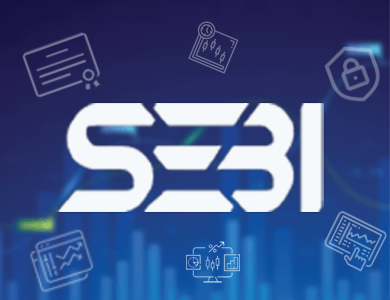SEBI Simplifies Process for Investors’ Heirs to Access Securities

In a significant move, SEBI (Securities and Exchange Board of India) has just made it much easier for the family members and nominees of deceased investors to access their shares and investments. No more navigating through complicated procedures and enduring long waits – SEBI has introduced a streamlined reporting and verification mechanism through KYC Registration Agencies (KRAs).
Who Can Report an Investor’s Death?
Any of the following can report the demise of an investor:
- Joint account holder(s)
- Nominee(s)
- Legal representative
- Family members
When an investor passes away, it’s crucial to report the death promptly to agencies like NSE and BSE. You’ll need to provide the death certificate and PAN of the deceased investor.
What Happens Next?
Once the documents are verified:
- All debit transactions in the account are immediately blocked.
- Within five days of the investor’s passing, the family member or nominee will be informed about the procedure for transferring the shares.
- The KYC status will be updated as “Blocked Permanently.”
This new procedure will be in effect from January 1, 2024.
Previously, the process lacked uniformity and could take an extensive amount of time to transfer shares to the rightful heirs. But now, SEBI’s streamlined mechanism will bring much-needed ease and simplicity to this often complicated process.
SEBI’s Circular in Detail
SEBI’s circular on October 3, 2023, outlines the specifics of this new process. It applies to regulated entities, including registered intermediaries (like brokers and exchanges), who interact with investors or account holders.
Key Steps for Intermediaries:
- Upon receiving information about an investor’s death, the intermediary must swiftly obtain the death certificate and PAN.
- If the intermediary can’t access the death certificate, it notifies the relevant parties and flags the investor’s KYC status as “On Hold.”
- After receiving the death certificate and verifying it, the intermediary updates the KYC status and blocks all debit transactions in the account.
Role of KYC Registration Agencies (KRAs):
- KRAs independently validate and verify the information provided by the intermediary.
- Upon validation of the death certificate, the KYC record is updated as “Blocked Permanently,” and this information is shared with all linked intermediaries.
- If any errors or issues arise, KRAs consult with the intermediary to resolve them.
Transmitting Assets of the Deceased Investor:
- Once the KYC is updated as “Blocked Permanently,” intermediaries must immediately block all debit transactions in the account and inform the notifier/nominee about the transmission procedure.
Transaction Requests for “On Hold” Accounts:
- If a transaction request is received for an account flagged as “On Hold,” additional due diligence is required to ensure the investor’s identity.
Correction of False Death Reports:
- If a reported death turns out to be incorrect, the intermediary can request a correction in the KYC status.
Uniform Procedure for the Industry:
SEBI emphasizes the importance of uniformity in implementing this circular across the industry. Stock exchanges, depositories, and industry associations are encouraged to establish a common Standard Operating Procedure (SOP) to ensure consistency and transparency.
This initiative by SEBI marks a significant step toward simplifying the process for investors and their heirs, providing much-needed relief during challenging times. Wealth creation and investment should be accessible to all, and SEBI’s actions are a testament to their commitment to achieving this goal. Stay tuned to our website for more updates on this exciting development in the financial industry!






